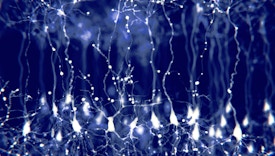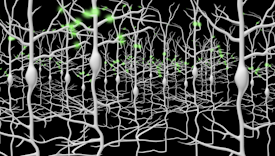
Alan Anticevic trained in clinical psychology and cognitive neuroscience at Washington University in St. Louis, where he worked with Deanna Barch and David Van Essen. Following his graduate training, Anticevic completed his internship in clinical neuropsychology at Yale University. He then joined the Yale University Department of Psychiatry as a faculty member while concurrently serving as the administrative director for the Center for the Translational Neuroscience of Alcoholism at Yale University. Subsequently, he became an associate professor of psychiatry and psychology and codirector of the division of Neurocognition, Neurocomputation, and Neurogenetics at Yale School of Medicine.
He has received numerous awards and prizes, including a NARSAD (National Alliance for Research on Schizophrenia and Depression) Young Investigator Award and a NARSAD Independent Investigator Award from the Brain & Behavior Research Foundation, in addition to the International Congress of Schizophrenia Research Young Investigator Award, the National Institutes of Health Director’s Early Independence Award and the Klerman Prize for Exceptional Clinical Research.
Broadly, his research interests are centered on the cognitive neuroscience of psychiatric disorders. Specifically, Anticevic is interested in characterizing brain circuits involved in cognitive operations, such as working memory, as well as their interaction with neural systems involved in affective processes, with the focus on understanding how these interactions may go awry in the context of neuropsychiatric disorders (e.g., schizophrenia, bipolar disorder, substance abuse). Methodologically, his research employs a combination of task-based, resting-state and pharmacological functional neuroimaging, as well as computational modeling approaches to mechanistically understand neural circuit dysfunction in these disorders.

